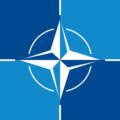Head, Security and Policy Oversight Branch
JOB DETAIL
The NOS is responsible for the overall coordination of NATO security among member Nations, NATO civil and military bodies as well as International Organizations and partner countries with which NATO cooperates. It is also responsible for the security of the NATO Headquarters and its personnel in Brussels, for the protection of the Secretary General and for the security and safety of its personnel in and on missions abroad. The NOS comprises the Office of the Director, the Security and Policy Oversight Branch (SPOB), the Protective Security and Emergency Services Branch, the Security Intelligence Branch and the Close Protection Unit.
The SPOB is responsible for ensuring that NATO Security Policy is applied throughout NATO bodies and member Nations, as well as in non-NATO Nations and international organizations with whom NATO cooperates. SPOB develops security policy, directives and guidance documents, supports their implementation and verifies compliance through security audits in the specific functional areas of personnel security, physical security, security of information, communication and information systems security (including cyber security), industrial and protective security. SPOB works with the other NOS Branches to ensure coordinated and consistent responses to the interpretation and practical application of policy.
The Head of SPOB is responsible to the DASG-S/Director NOS for ensuring that NATO security policy and supporting directives are implemented throughout NATO and non-NATO Nations and organizations with which NATO cooperates. SPOB is composed of three sections: Security Policy, Cyber Security, and Cyber Investigation and Auditing.
S/He is responsible for the overall supervision of the NATO security compliance programme, the security accreditation of NATO Communication and Information Systems (CIS), the implementation of security agreements with International Organizations and partner countries with which NATO cooperates as well as the coordination of the activities of the Security Committee.
- Allied leaders agreed an ambitious NATO 2030 agenda to ensure the Alliance can face the challenges of today and tomorrow. They took decisions to strengthen political consultations, reinforce collective defence, enhance resilience, sharpen NATO’s technological edge, uphold the rules-based international order, step up training and capacity building for partners, and address the security impact of climate change. Based on NATO 2030 agenda and NOS/SPOB mandate, please identify relevant security work strands that could be developed to support NATO’s ambition.
- NOS/SPOB performs regular security audits across 80 countries as part of the NATO security compliance programme for the protection of NATO classified information. Provide your view on the challenges posed by a security compliance programme in a multi-national environment as well as your ideas about how to address them in an innovative way.
- Globalisation has transformed the world into a more connected and interdependent place (e.g. socially, economically, technologically) but also introduced a number of security challenges. Identify the main challenges and their relevance for the specific functional areas SPOB is responsible for (i.e. personnel, physical/protective, information, cyber and industrial security).
In addition to the application form, candidates are expected to submit a Word or pdf document, maximum of three A4 pages, summarising their views on the above-listed key (and possible other) challenges, and how they would address them if selected for the position.
- possess a Bachelor’s degree or equivalent qualification from an institute of recognised standing;
- possess at least 10 years’ relevant experience in progressively responsible roles, in security related matters, especially in the field of information protection; out of which 5 years in team management and coordination;
- have occupied a post where s/he was responsible for administering security policy, preferably in the public sector of a member Nation or in an International Organisation;
- possess extensive knowledge and implementation experience of personnel security, physical security, security of information, CIS Security and Industrial Security;
- possess demonstrated management and leadership abilities at senior level;
- possess highly developed communication and interpersonal skills and have a demonstrated past history of working at team level in accomplishing work goals;
- possess the following minimum levels of NATO’s official languages (English/French): V (“Advanced”) in one; I (“Beginner”) in the other;
- be flexible to work outside or normal office hours and travel as required.
- a higher level of education (Masters or Ph.D) in a related field;
- familiarity with NATO security policy;
- awareness of NATO’s military and civilian structure and activities;
- a higher level in the other NATO official language
-
Achievement: Sets and works to meet challenging goals.
-
Change Leadership: Personally leads change.
-
Conceptual Thinking: Clarifies complex data or situations.
-
Developing Others: Provides in-depth mentoring, coaching and training.
-
Impact and Influence: Uses indirect influence.
-
Initiative: Plans and acts for the long-term.
-
Leadership: Positions self as the leader.
-
Organisational Awareness: Understands organisational politics.
-
Self-Control: Stays composed and positive even under extreme pressure
-
For NATO civilian staff members only: please apply via the internal recruitment portal (link);
-
For all other applications: www.nato.int/recruitment

